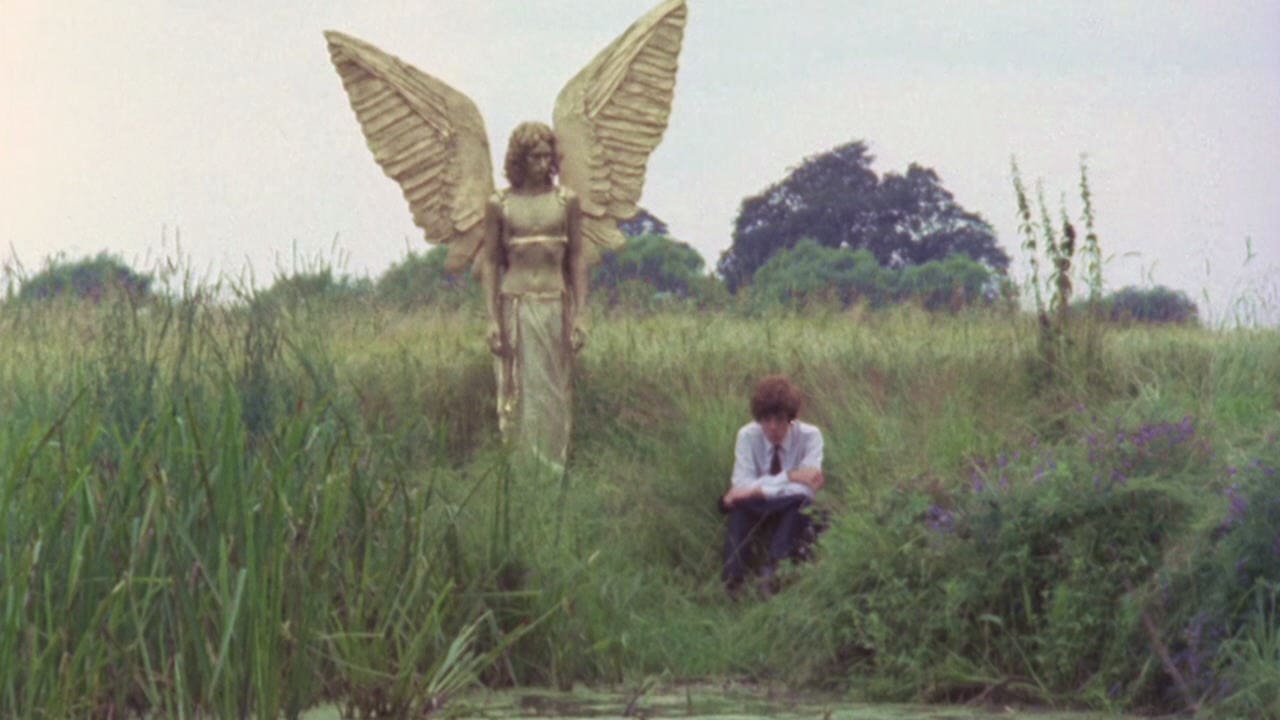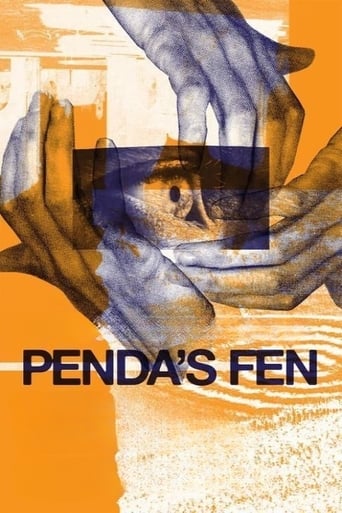Colibel
Terrible acting, screenplay and direction.
Afouotos
Although it has its amusing moments, in eneral the plot does not convince.
Benas Mcloughlin
Worth seeing just to witness how winsome it is.
kmoh-1
This splendid use of the BBC's Play for Today slot, finally released on DVD, still stands as a classic. Certainly, as one reviewer has pointed out, the pace is slower and more reflective than a modern film would be, in accordance with the style of the day.Stephen is on the cusp of adulthood in the idyllic English village of Pinvin, blessed with absolute and martial certainty about the world and his role in it. His public (i.e. private and posh, in the English system) school has given him a classical and religious education and a role in the Combined Cadet Force, a British youth organisation based in schools conducting military training as an out-of-hours activity, sponsored by the Minstry of Defence. It is usually seen as a precursor to the Officers' Training Corp in universities, and then the army. His favourite piece of music is Elgar's 'Dream of Gerontius', a major choral work which follows a dying man's journey through his death to his judgment. He is appalled at the arguments of Arne, a left-wing writer who lives in the village. His traditional views mark him out from his schoolmates, teachers and parents.In the UK at the time (1974), politics were very polarised between left and right - at the time of broadcast, a modernising, business-oriented Conservative Prime Minister (who had taken the UK into the European Union), had just been brought down by industrial chaos induced by a series of strikes. Stephen's traditional politics, which had been dominant a decade earlier, were fast seeming irrelevant in the modern world.Stephen is rooted in place; Elgar is not only the quintessential English composer, but also strongly associated with the city of Worcester and the nearby Malvern Hills, where Stephen lives. Stephen ticks off a signwriter who has spelt 'Pinvin' incorrectly, horrified by the error.But this seemingly minor event causes Stephen's world to unravel. The name 'Pinvin' is derived from 'Penda's Fen', Penda being the last pagan king of the Anglo-Saxon kingdom of Mercia (which contained the Malverns). Like Gerontius, Stephen's journey includes encounters with angels and demons, and indeed Elgar himself - who turns out to be a lonely outsider too. One by one, Stephen's religious, political, artistic, familial and sexual convictions are unpicked, as he mistranslates the Greek maxim "know thyself" as "discover thyself" - a much more dynamic understanding of the aphorism.At the close, Stephen confronts the conflicting forces, alternative histories and complex power relations of England at the time, and a final encounter with King Penda himself hints at dark times ahead. The world cannot be grasped from a simplistic point of view. Stephen's final lesson, perhaps even more relevant now than in 1974, is that conviction is hardly an appropriate tool for understanding the multiple identities that resonate within oneself and one's community.
Tom Dooley
Made for the BBC 'Play for Today' series in 1974 and written by visionary David Rudkin, this is a film that still manages to have a massive impact even after the passing of so many years. It is about Stephen Franklin who is the son of a rather profound Reverend. He is about to turn eighteen and is going through a rites of passage crisis. This is both spiritual and sexual.He is unintentionally spurred on by the left wing views of a Socialist writer who is now living in the small rural village and he is smitten with the music of Elgar. The film tracks his spiral towards finding who he really is, his nature as opposed to his nurtured self. His posh school is the sort that has Greek and Latin mottos everywhere, one such being 'discover thyself' but his discoveries lead him to be seen as 'not one of the team. The film is replete with imagery and ghosts or dreams of the past which reflects the journey that Stephen is going on but also helps to expand the stories behind the story and is often done in an iconic fashion. It is also beautifully framed and shot and the musical score helps to elucidate more meaning from seemingly simplistic imagery. This is one of those films that will make you think and is the sort that will give you more on subsequent viewings. I am already wanting to see it again as there is so much here to drink in with both your eyes and mind that I a bound to have missed some on my first viewing. Absolutely recommended to anyone interested in this time in TV development or those who love a stunningly well made, written and directed film.
Prismark10
Alan Clarke was better known as a social realist director with films such as Scum or The Firm. He was an unlikely choice to direct Penda's Fen by writer David Rudkin, a type of film that could happily be made by someone like Terrence Malick.The film is about Spencer Franklin, a vicar's son, studying at sixth form and about to turn 18 year of age. He is going through a rites of passage that involves a spiritual and sexual awakening particularly his latent homosexuality bubbling underneath.It is this sexual confusion plus the arrival of a socialist writer in this quiet Worcestershire village leads Stephen to moral confusion and he starts to lose his grip on reality. He dreams of a demon sitting on his bed, he meets composer Edward Elgar, he finds out that he is adopted and finally meets King Penda, the last pagan king of England.Penda's Fen was shown for the Play for Today strand on BBC television. It has now been cleaned up for a Blu-Ray release. The films use of visuals and use of classical music gives it a haunting quality but the script and the way it is delivered by the actors was rather flat.There is no doubt that this is an ambitious and avantgarde work but I felt that the reputation it has acquired is overstated.
Gary-161
I *loved* Artemis 81 but struggled a bit with Penda's Fen. Artemis risked charges of meretriciousness due to its risky combination of high and low brow culture, but was ultimately sincere. Rudkin is one of these individuals who appears to have a vocation or higher calling to the services of art, which is always nourishing to experience but there is a certain problem of drama with Penda, that is the conflict is largely metaphysical. It is concerned with moral questions and the ending with Penda pontificating on his throne may be overly portentous or even risible for some. Tarkovsky's 'Nostalgia', with the self immolation of the 'madman' on the statue of the horse, seemed to express similar sentiments to Rudkin, so perhaps it's a timeless theme amongst artists the world over. Not being an artist myself, I wouldn't presume to know. I do question whether corporate man is necessarily spiritually bankrupt. Maybe he or she goes to sleep with a Herman Hesse paperback tucked under the pillow, who would know? Maybe Penda.

